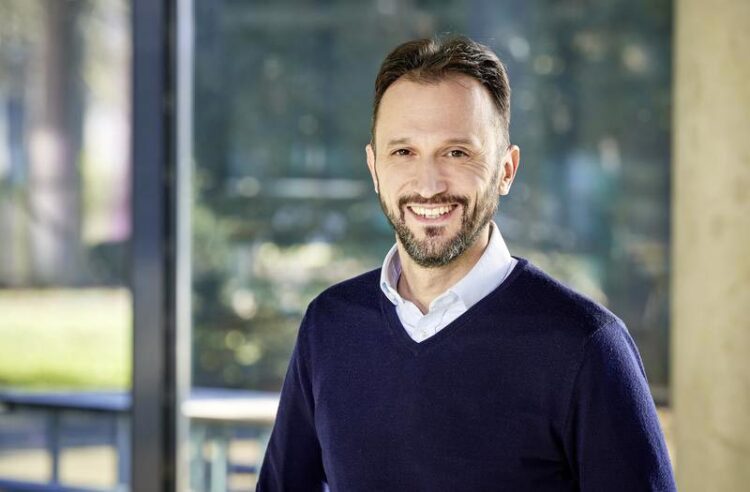Wind energy from a 3D printer

Professor Uygun's research group at Constructor University is developing vertical wind turbines and will produce them in its own 3D printer on campus in Bremen.
(c) Constructor University
“Wind.EnergyAutonomous Schools in the Metropolitan Region Northwest ” – this is the name of a new research project led by Dr. Yilmaz Uygun, Professor at Constructor University in Bremen.
The project runs in collaboration with the County of Friesland (Germany) and ist funded by the Metropolitan Region Northwest. The aim is to further develop and validate a proprietary vertical-axis wind turbine that will be produced by using the world’s largest industrial delta-type 3D printer. The turbines are intended to serve as a sustainable energy source for schools in particular.
A pilot project for energy self-sufficient schools is now starting in the County of Friesland, Northern Germany, in which school buildings will be equipped with vertical-axis wind turbines. This will be facilitated by a research group led by Professor Uygun from Constructor University. This group is studying and developing vertical wind turbines, which will be produced in its own 3D printer on the campus in Bremen and will be tested in practice within this project. This creates a fully functional test field that provides important data and experience for technology transfer.
In the current energy crisis and the accompanying energy-saving measures, it is becoming increasingly difficult for schools to cover their high energy consumption with renewable energy. This is also due to the fact that they have to meet high requirements – for example, no horizontal wind turbines may be used – and solar panels are often not efficient enough for the high energy demand.
“With this project, we are breaking new ground in urban energy generation on this scale for the first time, with the aim of making public properties energy self-sufficient. After successful testing at the Hohenkirchen Secondary School, the project is to be scaled up easily and quickly so as to contribute to the energy transition,” said Prof. Uygun.
The funding of the Metropolitan Region Northwest exclusively considers project ideas around the topics of resource efficiency, resource protection and energy transformation. In addition to Professor Uygun’s project, two other campaigns have been awarded funding from the support fund of the states of Bremen and Lower Saxony. One identifies potential for saving drinking water, whereas the other one explores ways to recycle residual and commercial waste.
Wissenschaftliche Ansprechpartner:
Dr. Yilmaz Uygun | Professor of Logistics Engineering, Technologies and Processes
yuygun@constructor.university | Tel.: +49 421 200-3478
Weitere Informationen:
Media Contact
All latest news from the category: Power and Electrical Engineering
This topic covers issues related to energy generation, conversion, transportation and consumption and how the industry is addressing the challenge of energy efficiency in general.
innovations-report provides in-depth and informative reports and articles on subjects ranging from wind energy, fuel cell technology, solar energy, geothermal energy, petroleum, gas, nuclear engineering, alternative energy and energy efficiency to fusion, hydrogen and superconductor technologies.
Newest articles

Innovative 3D printed scaffolds offer new hope for bone healing
Researchers at the Institute for Bioengineering of Catalonia have developed novel 3D printed PLA-CaP scaffolds that promote blood vessel formation, ensuring better healing and regeneration of bone tissue. Bone is…

The surprising role of gut infection in Alzheimer’s disease
ASU- and Banner Alzheimer’s Institute-led study implicates link between a common virus and the disease, which travels from the gut to the brain and may be a target for antiviral…

Molecular gardening: New enzymes discovered for protein modification pruning
How deubiquitinases USP53 and USP54 cleave long polyubiquitin chains and how the former is linked to liver disease in children. Deubiquitinases (DUBs) are enzymes used by cells to trim protein…



